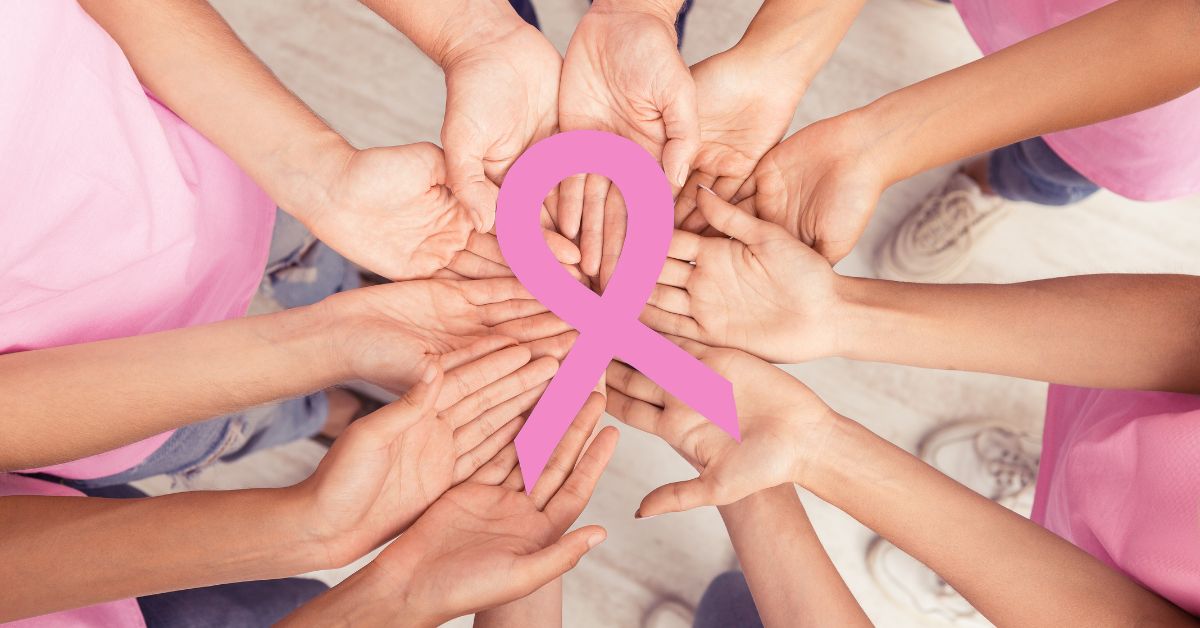While women may be attuned to the importance of safeguarding their breast health, there is often confusion about when to schedule a testing appointment, especially if they have a family history of cancer. While 40 is the typical age to schedule a mammogram, if a woman has a relative who was previously diagnosed with cancer, she may need to be tested even sooner. Fortunately, Northwest Indiana Breast Care Center’s High-Risk Breast Program is designed to help women with a higher risk of developing breast cancer.
“If they have a family history of cancer, they definitely need to get involved in the high-risk program to see if they’re at a higher risk of getting cancer,” said Sara Zilz, breast nurse navigator at Northwest Indiana Breast Care Center. “It’s a rule of thumb to get tested 10 years prior to when your mom got diagnosed. If your mom got diagnosed at 40, then you’d want to get screened at 30, and then you would start your annuals at when you were 40, just so we have a baseline.”
The High-Risk Breast Program uses a software system called Volpara Health to determine if women have over a 20% lifetime risk of breast cancer. Volpara does several assessments to answer different questions using various formulas, and the highest score is then accepted by the system. These labs are then sent to Invitae, an international company owned by LabCorp, to run tests for 70 genes to further screen for gene mutation and assess the risk of developing breast cancer.
“We offer genetic counseling and breast MRIs as appropriately designated. We used to have a paper order process, and it was an antiquated process. Now our program is online, so we have the option for more clinicians to participate versus it just being the internal Breast Center team,” said Jennifer Sanders, manager at Northwest Indiana Breast Care Center. “That’s where we made a flip: not only does the breast center take care of the high-risk patients, but we’ve also involved our patients’ physicians in this process as well. That was a big change for us. Physicians are now able to order genetic testing for their patients and follow up with a genetic counselor regarding their patients’ status. We’ve made improvements regarding access for our physicians and patients.”
With both the Breast Care Center staff and patients’ physicians having the ability to order genetic testing, this process is more intuitive than ever. It is not only helpful for medical professionals, but also for patients, giving them early diagnoses and, therefore, the opportunity for earlier treatment.
“Once the results come in, if they are positive for a genetic mutation, what will happen is they will follow up with a genetic counselor via Invitae and possibly a telehealth visit. Once they have the information and all those questions answered by their genetic counselor, we will then set them up with an appointment with an oncologist. When they have all the information in front of them, oncologists can ask, ‘How do you want to manage your care from this point forward?’ It gives patients all the tools they need to go ahead and find this disease at an earlier stage,” Sanders said.
For patients who would like to take advantage of LabCorp’s genetic testing through the High-Risk Breast Program but are unsure of the cost, LabCorp offers financial assistance in accordance with federal poverty limits and discounts. It also accepts insured patients, Medicaid/Medicare patients, and uninsured patients.
If you or a loved one would like to learn more about the High-Risk Breast Program, please call 219-756-4436. To schedule a mammogram at the Breast Care Center, call 219-981-5440. Learn more about everything Northwest Indiana Breast Care Center at Methodist Hospitals has to offer by visiting methodisthospitals.org.

